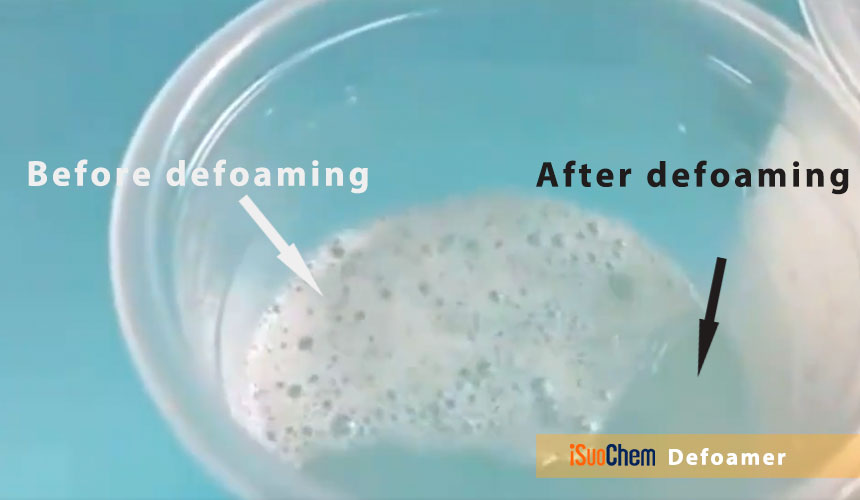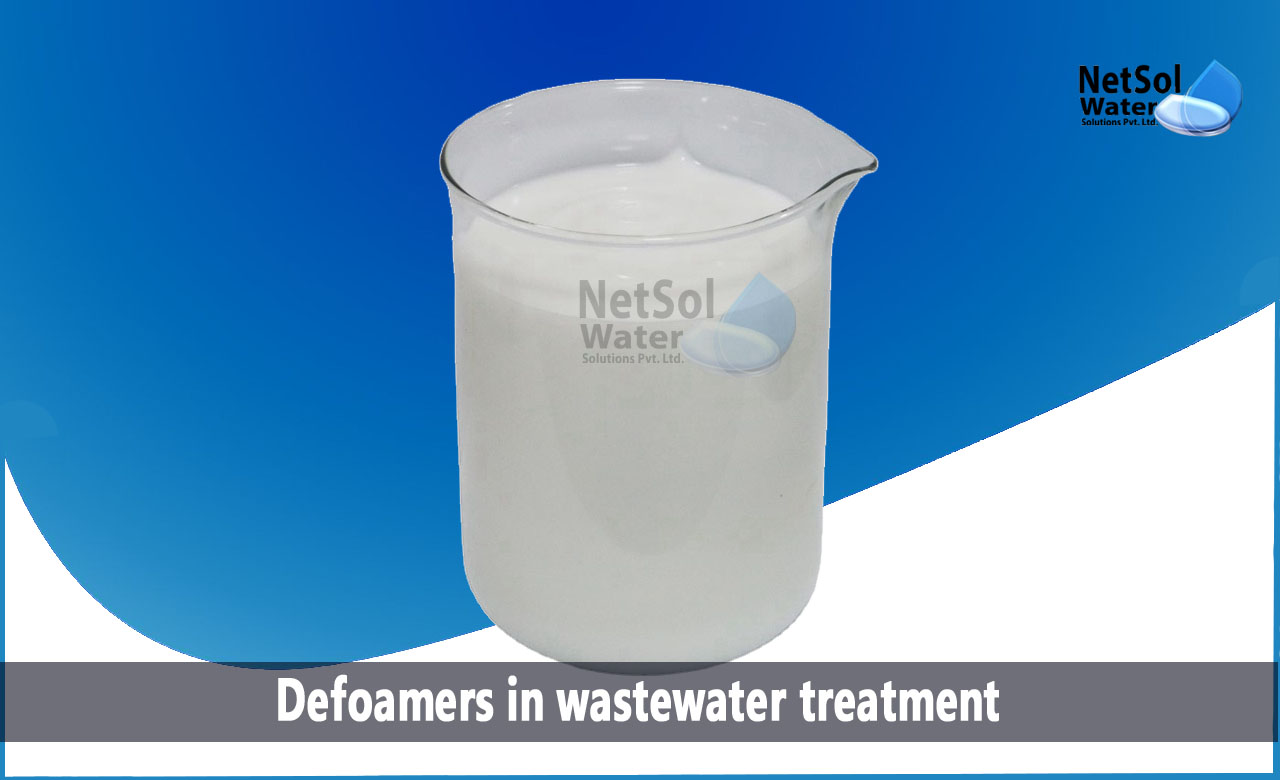Discover the Top Advantages of Utilizing Defoamers in Industrial Processes
The application of defoamers in industrial processes provides an array of engaging benefits that can enhance operational efficiency and product quality. By properly controlling foam production, these agents not only enhance product circulation yet also contribute to considerable expense decreases and boosted sustainability. The effects of adopting defoamers may be much more extensive than originally regarded.
Boosted Refine Efficiency
Optimizing industrial processes typically entails dealing with lathering problems, which can impede operational efficiency. Foam formation can hinder the appropriate performance of tools, lower the reliable application of sources, and make complex the surveillance of essential criteria. By applying defoamers, industries can effectively mitigate these issues, leading to structured procedures and enhanced efficiency.
Defoamers work by destabilizing the foam framework, allowing for quick collapse and substantial decrease in foam volume. This action not just boosts the flow of materials via tools, such as mixers, reactors, and pipelines, but additionally lessens disruptions triggered by foam overflow. Consequently, tools downtime is lowered, permitting for a much more continuous and reliable manufacturing process.
Additionally, the usage of defoamers can result in reduced power consumption. With much less foam to manage, pumps and compressors can operate much more efficiently, leading to reduced functional expenses and a total enhancement in procedure throughput. Ultimately, the critical use of defoamers not just addresses immediate lathering challenges however also contributes to an extra efficient commercial ecosystem, promoting a competitive advantage in a demanding market.
Improved Item Top Quality
The integration of defoamers in industrial procedures plays a vital duty in improving item quality. By successfully controlling foam formation, defoamers add to the uniformity and harmony of end products. Too much foam can lead to aeration, which negatively impacts the texture and stability of solutions, especially in markets such as food and layers, drugs, and drinks.

In addition, defoamers assist in better blending and diffusion of components, resulting in homogeneity in solutions. This is necessary in applications where accurate ingredient proportions are vital for efficiency and security. Additionally, the removal of foam can decrease the risk of contamination throughout production, additional protecting item integrity.
Inevitably, by improving product quality, defoamers not only boost consumer contentment however additionally strengthen brand name credibility. Their duty in maintaining high-grade criteria underscores their relevance in modern industrial procedures.
Cost Reduction Advantages
Implementing defoamers in industrial procedures can lead to substantial price reduction advantages. By properly controlling foam formation, defoamers lessen item loss during manufacturing, therefore enhancing product usage. This decrease in waste translates directly into reduced resources prices, enhancing general functional efficiency.
Furthermore, making use of defoamers can reduce power intake. Excessive foam can hinder equipment performance, bring about increased energy requirements to preserve production levels. By alleviating foam, defoamers promote smoother procedures, permitting equipment to run extra efficiently and decreasing energy expenditures.

Furthermore, defoamers can shorten processing times. By making use of defoamers, markets can improve their processes, leading to faster turn-around times and boosted throughput.

Environmental Influence Reduction
In industrial processes, making use of defoamers plays an important duty in mitigating ecological impacts related to foam generation. Foam can bring about significant operational ineffectiveness, leading to raised exhausts and waste generation. By effectively managing foam, defoamers assist keep procedure efficiency, thereby websites decreasing the general environmental impact of procedures.
Additionally, too much foam can overflow control systems, bring about spills that may contaminate soil and water resources. Defoamers help minimize this risk by guaranteeing that foaming does not exceed recommended limitations, promoting compliance with environmental policies. This positive strategy not only safeguards environments however likewise improves the sustainability of industrial practices.
Additionally, making use of defoamers can decrease power usage in different processes. defoamers. Reducing foam development lessens the demand for extra energy-intensive steps, such as enhanced agitation or pumping, which might or else be needed to handle foam. The adoption of defoamers straightens with wider sustainability goals by advertising energy efficiency while lessening the carbon footprint of commercial tasks.
Ultimately, incorporating defoamers right into industrial procedures is a calculated measure that sustains environmental stewardship and liable resource management.
Adaptability Across Industries
Throughout various sectors, defoamers demonstrate remarkable adaptability, adapting to the details requirements of varied applications. In the food and beverage field, as an example, defoamers are critical to preserving item high quality by preventing foam development during handling, which can affect structure and taste. In the pharmaceutical sector, defoamers guarantee the security of solutions, enhancing product efficiency and consistency.
In the chemical manufacturing world, defoamers facilitate smoother procedures by minimizing foam in reaction vessels, hence improving yield and lowering downtime. The paper and pulp industry counts on defoamers to boost the performance of pulp processing and paper production, making certain optimal product stability. In addition, in wastewater treatment facilities, defoamers play an essential role in managing foam throughout oygenation processes, leading to enhanced treatment results.
The convenience of defoamers encompasses the oil and gas market, where they assist in handling foam in exploration liquids and manufacturing procedures. By customizing solutions to fulfill certain sector needs, defoamers serve as crucial devices that enhance operational efficiency, product quality, and total process efficiency throughout a wide range of markets. Their adaptability emphasizes their value in modern commercial applications.
Verdict
Finally, the use of defoamers in industrial processes offers countless benefits, including boosted performance, enhanced product high quality, significant cost decreases, and positive ecological effects. Their ability to effectively regulate foam formation contributes to try these out functional continuity and source optimization. Moreover, the flexibility of defoamers across varied industries emphasizes their why not find out more important role in advertising sustainable techniques and success. The assimilation of defoamers represents a critical method to resolving challenges related to foam administration in various producing settings.
Ultimately, the calculated usage of defoamers not just addresses prompt foaming challenges however likewise adds to an extra reliable industrial community, promoting an affordable benefit in a demanding market.
In industrial processes, the use of defoamers plays a critical duty in mitigating environmental impacts associated with foam generation. By efficiently managing foam, defoamers assist keep procedure efficiency, thereby decreasing the general environmental impact of operations.
Furthermore, in wastewater treatment facilities, defoamers play an important role in controlling foam during aeration processes, leading to improved treatment results.
